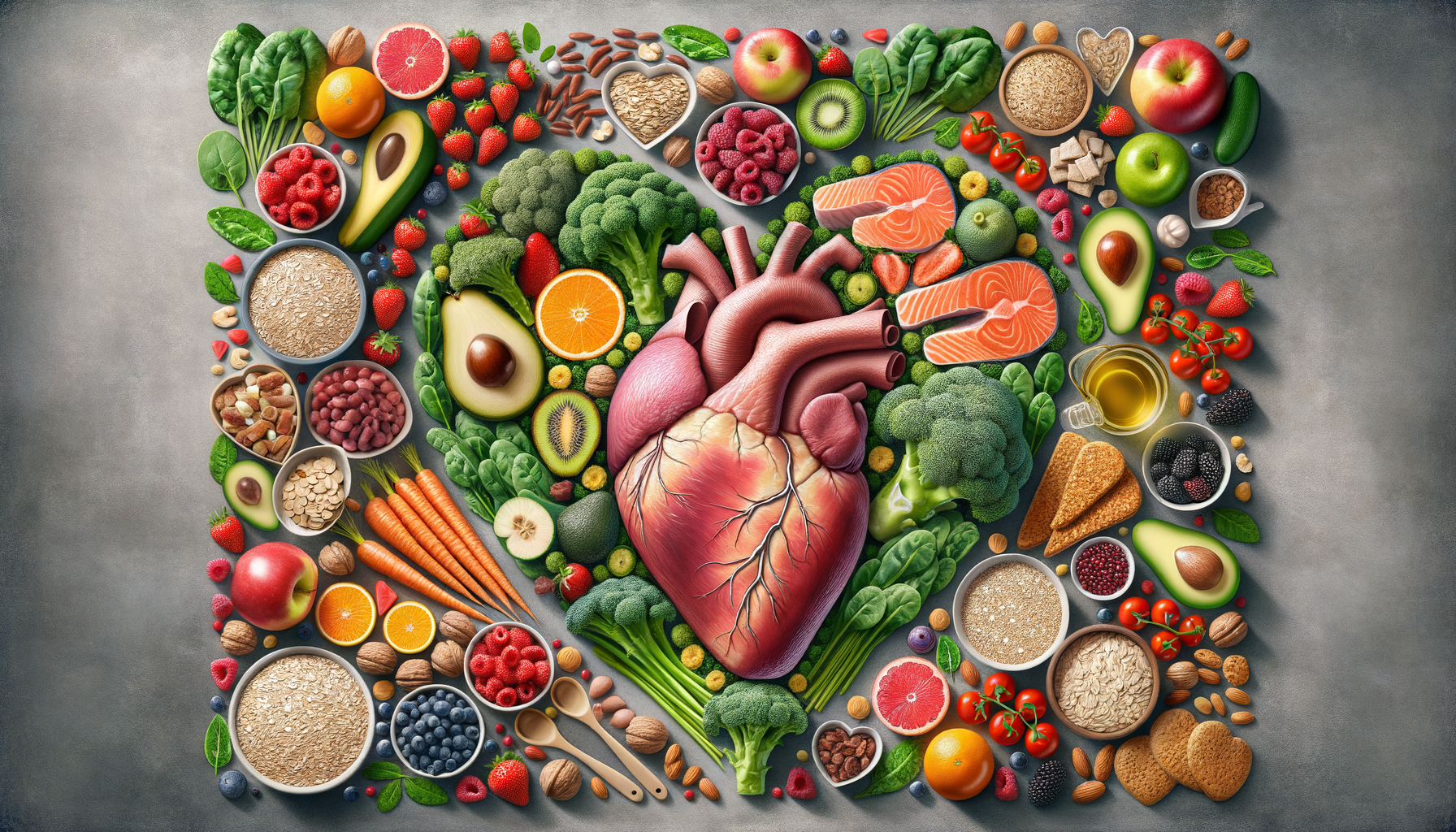Introduction to Heart-Healthy Eating
In today’s fast-paced world, maintaining heart health is more crucial than ever. With cardiovascular diseases being a leading cause of mortality globally, making informed dietary choices can significantly impact one’s heart health. This article delves into foods commonly linked to heart wellness, offering insights into how they contribute to a healthier cardiovascular system. Emphasizing a balanced diet that includes these foods can be a proactive step towards a healthier heart.
Fruits and Vegetables: Nature’s Heart Protectors
Fruits and vegetables are often celebrated for their rich nutrient profiles, which play a vital role in heart health. These foods are typically high in fiber, vitamins, and antioxidants, all of which contribute to maintaining a healthy heart. For instance, leafy greens like spinach and kale are packed with vitamins A, C, and K, as well as antioxidants that help reduce inflammation and oxidative stress.
Berries, such as strawberries, blueberries, and raspberries, are particularly beneficial due to their high levels of polyphenols. These compounds have been shown to improve heart health by reducing blood pressure and cholesterol levels. Additionally, fruits and vegetables are low in calories, making them an excellent choice for weight management, which is crucial for heart health.
Incorporating a variety of fruits and vegetables into your diet can provide a range of nutrients that support cardiovascular health. Consider adding the following to your meals:
- Leafy greens like spinach and kale
- Cruciferous vegetables such as broccoli and Brussels sprouts
- Citrus fruits like oranges and grapefruits
- Berries including strawberries, blueberries, and raspberries
By making fruits and vegetables a staple in your diet, you’re not only supporting your heart but also enhancing overall well-being.
Whole Grains: A Foundation for Heart Health
Whole grains are another essential component of a heart-healthy diet. Unlike refined grains, whole grains retain all parts of the grain kernel, providing more fiber, vitamins, and minerals. This makes them an excellent choice for those looking to support their cardiovascular health.
Oats, barley, and quinoa are among the top whole grains known for their heart benefits. Oats, for instance, contain beta-glucan, a type of soluble fiber that helps lower cholesterol levels. Barley is also rich in fiber and can aid in reducing blood sugar levels, while quinoa offers a complete protein source that is beneficial for muscle health and repair.
Incorporating whole grains into your diet can be simple and delicious. Here are some ways to enjoy them:
- Start your day with a bowl of oatmeal topped with fresh fruits
- Include quinoa in salads for a protein-rich meal
- Opt for whole-grain bread and pasta over refined options
- Use barley in soups and stews for added texture and nutrition
By choosing whole grains, you’re not only supporting heart health but also promoting digestive health and sustained energy levels.
Healthy Fats: Essential for Heart Wellness
While fats often get a bad rap, certain types of fats are essential for heart health. Unsaturated fats, particularly omega-3 fatty acids, play a crucial role in maintaining cardiovascular wellness. These fats can help reduce inflammation, lower triglyceride levels, and improve overall heart function.
Fatty fish like salmon, mackerel, and sardines are rich in omega-3s and are highly recommended for those looking to enhance heart health. Additionally, plant-based sources such as avocados, nuts, and seeds provide healthy monounsaturated and polyunsaturated fats.
Here are some tips for incorporating healthy fats into your diet:
- Include fatty fish in your meals at least twice a week
- Snack on a handful of nuts or seeds for a heart-healthy boost
- Add avocado slices to sandwiches and salads
- Use olive oil as a dressing or for cooking
By prioritizing healthy fats, you’re supporting heart health while also enjoying flavorful and satisfying meals.
Conclusion: Embrace Heart-Healthy Choices
Incorporating heart-loving foods into your daily diet is a proactive step towards maintaining cardiovascular health. By focusing on a balanced diet rich in fruits, vegetables, whole grains, and healthy fats, you’re not only supporting your heart but also enhancing your overall well-being. Remember, small dietary changes can lead to significant health benefits over time. Embrace these heart-healthy choices and enjoy the journey to a healthier lifestyle.




Leave a Reply